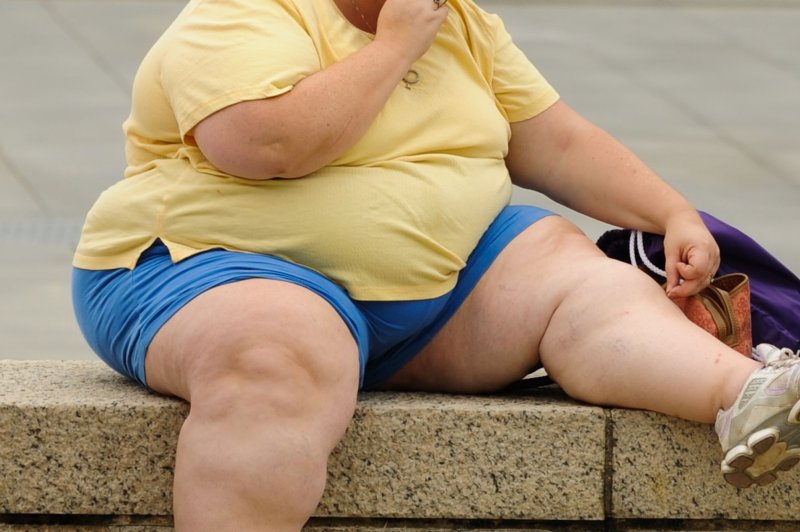A study found young people with Down syndrome or other cognitive impairments are just as successful in shedding excess pounds after weight-loss surgery as their peers. File Photo by Alexis C. Glenn/UPI |
License Photo
Young people with Down syndrome or other cognitive impairments are just as successful in shedding excess pounds after weight-loss surgery as their peers, a new study finds.
Researchers reviewed outcomes for 63 young people, aged 13 to 24, who had bariatric surgery at Children's National Health System in Washington, D.C. All were severely obese, and all had been diagnosed with cognitive impairment or an intellectual disability.
The study is the first to examine weight-loss surgery outcomes in this group of patients, according to the authors.
Young people with Down syndrome and other types of intellectual disabilities or mental impairment have higher rates of obesity and related health problems.
But many primary care doctors are reluctant to refer them for weight-loss surgery due to concerns about their ability to understand and agree to the procedure, and to follow the diet and lifestyle changes required afterward, according to the study authors.
They recommend making decisions on a case-by-case basis.
First author Sarah Hornack, a clinical psychologist at Children's National, said it's challenging but possible to ensure that a young person who is mentally impaired understands what's involved in the surgery.
"We do find ways to ensure assent whenever possible, and make sure the patient also has a guardian capable of consent," she said in a health system news release.
Hornack said a strong support system is a key element in a young patient's success after surgery.
"Often, we see that adolescents with lower cognitive function already have a well-established support system in place to assist them with other care needs, that can easily adapt to providing structure and follow-through after weight-loss surgery, too," she said.
Senior author Eleanor Mackey, also a clinical psychologist at Children's National, said researchers are happy to offer evidence that can aid decision-making.
"So many families are helping to make sure that their children, despite disabilities, can be as healthy as possible in the long term," she said.
"Though the sample size is small, it does give credence to the idea that for many adolescents and teenagers, weight-loss surgery may be a really viable option regardless of pre-existing conditions such as intellectual ability or cognitive function," Mackey added.
The study was published last week in the journal Pediatrics.
More information
The U.S. National Institute of Diabetes and Digestive and Kidney Diseases has more on weight-loss surgery.
Copyright © 2019 HealthDay. All rights reserved.
![]()
















